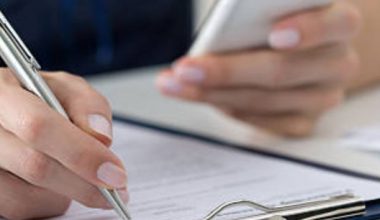As the end of the school year approaches, students across the country are gearing up for their year 12 mock exams. These practice tests serve as a very important stepping stone towards the final exams.
Year 12 mock exams basically provides a valuable opportunity to assess strengths and weaknesses before the big day. However, many students approach mocks unprepared or make common mistakes that hinder their performance.
In this article, we will look at the importance of year 12 mocks and discuss some key tips to help you make the most out of this important test.
Stay on!
Table of contents
- What Is Year 12 Mock?
- When Do You Do Year 12 Mocks?
- What Is The Purpose Of Year 12 Mock Exam?
- How To Study And Prepare For Year 12 Mock Exams
- 1. Understand the Exam Format:
- 2. Create a Study Schedule:
- 3. Set Clear Goals:
- 4. Gather Study Materials:
- 5. Organize Your Study Space:
- 6. Active Learning Techniques:
- 7. Use Past Papers:
- 8. Seek Help When Needed:
- 9. Create Revision Notes:
- 10. Time Management:
- 11. Prioritize Self-Care:
- 12. Mock Exam Simulation:
- 13. Review and Reflect:
- 14. Stay Positive and Stay Consistent:
- 15. Exam-Day Preparation:
- 16. Post-Exam Analysis:
- Frequently Asked Questions
- Conclusions
- References
- Recommendations
What Is Year 12 Mock?
Year 12 mock exams are practice exams taken by students typically in their final year of secondary education, which is often called Year 12 in many education systems.
These mock exams are designed to simulate the format and conditions of the actual final examinations that students will face at the end of their academic year.
Also read: How Do I Know if My Child is Suitable For Grammar School?
When Do You Do Year 12 Mocks?
The timing of Year 12 mock exams can vary depending on the education system and individual schools.
However, in many countries, Year 12 mock exams are typically conducted in the months leading up to the final examinations. Here’s a general timeline:
First Half of the Year:
Mock exams are often scheduled in the first half of the academic year, usually in the months of February to April. This timing allows students to have a significant period of preparation before their final exams.
Before Final Exams:
Schools aim to conduct mock exams several weeks or even a couple of months before the actual Year 12 final exams. This gives students ample time to review and make improvements based on their mock exam results.
Varies by Region:
Keep in mind that the exact timing can vary by region and educational institution. Some schools may have mock exams earlier or later in the year.
Also read: What are Comprehensive And Foundation Schools? How Does It Work?
What Is The Purpose Of Year 12 Mock Exam?
The purpose of Year 12 mock exams is multifaceted, encompassing various educational, psychological, and practical goals.
These practice examinations, often taken by students in their final year of secondary education, serve several critical purposes:
Assessment of Knowledge:
Mock exams are designed to assess students’ understanding of the subjects they have studied throughout the year.
They provide a comprehensive evaluation of their knowledge and mastery of course content.
Preparation for Final Exams:
One of the primary purposes is to prepare students for their Year 12 final exams, which are typically high-stakes and critical for academic progression.
Mock exams simulate the format, content, and conditions of these final exams, helping students become familiar with what to expect.
Timing and Pacing Practice:
Mock exams help students develop time management skills and a sense of pacing. They learn to allocate their time wisely during the exam, ensuring they can complete all sections within the allocated time frame.
Identification of Weaknesses:
Taking the mock exams helps students identify their academic strengths and weaknesses in specific subjects. This self-assessment allows them to focus their study efforts on areas where improvement is needed.
Feedback and Improvement:
Mock exams provide an opportunity for students to receive feedback on their performance. Teachers can analyze the results and offer guidance on how to improve before the final exams. This feedback loop is invaluable for enhancing academic skills.
Stress Reduction:
Year 12 can be a stressful year for students due to the significance of final exams. Mock exams help alleviate anxiety by allowing students to experience exam conditions in a lower-pressure environment. This familiarity reduces exam-related stress and nervousness.
Revision and Consolidation:
Preparing for mock exams necessitates revisiting and consolidating course material. This revision process reinforces students’ knowledge and understanding of the subject matter.
Goal Setting:
Mock exams can serve as a checkpoint for students to set goals and benchmarks for their final exams. Achieving satisfactory results in mock exams can boost students’ confidence in their ability to perform well in the finals.
Academic Accountability:
Mock exams create a sense of accountability among students. They understand that their performance in these practice tests can impact their final grades and academic prospects, motivating them to take their studies seriously.
Also read: Do BTECs Have Exams? 2024 Exam Timetable & Tips
How To Study And Prepare For Year 12 Mock Exams
Preparing for Year 12 mock exams is a crucial step in achieving success in your final year of secondary education.
These practice exams provide an opportunity to assess your knowledge, identify areas of improvement, and build confidence for the real deal.
Below are some tips to help you study and prepare effectively for Year 12 mock exams:
1. Understand the Exam Format:
Begin by familiarizing yourself with the format and structure of the mock exams. Know the number of papers, the duration of each exam, and the types of questions you can expect.
Additionally, make sure to review any guidelines or instructions provided by your instructor or exam proctor. This will ensure that you know exactly what is expected of you during the exam and can avoid any unnecessary mistakes.
Lastly, practicing with past exams or sample questions can also help you get a feel for the format and build confidence for the actual test day.
2. Create a Study Schedule:
Creating a study schedule for an exam can be a great way to stay organized and focused on your preparation. Start by breaking down the topics you need to cover and allocating specific time slots for each one. Consider your strengths and weaknesses in each subject and prioritize accordingly.
It’s important to set realistic goals and include regular breaks in your schedule to avoid burnout. Make sure to also factor in time for revision and practice tests to gauge your progress.
Remember, consistency is key, so try to stick to your schedule as much as possible but also be flexible enough to adjust it if needed.
3. Set Clear Goals:
Set specific, achievable goals for each subject. Identify the grades you aim to attain in the mock exams, which will help you stay motivated.
When setting study goals, make sure they are specific, measurable, achievable, relevant, and time-bound (SMART). This will make it easier for you to break down larger objectives into smaller, manageable steps.
Additionally, regularly reviewing and adjusting your goals as needed can help keep you on track and ensure that you are moving in the right direction.
Remember, setting clear study goals is not only about achieving academic success but also about personal growth and development.
Also read: How to Sit For GCSE Exams Privately: The Extensive Guide
4. Gather Study Materials:
Ensure you have all the necessary study materials, including textbooks, class notes, and any additional resources recommended by your teachers.
Next, consider different sources for study materials such as online resources, libraries, or study groups. Online platforms like Khan Academy, Coursera, and YouTube can offer a wealth of information on various subjects.
5. Organize Your Study Space:
Organizing your study space for an exam is crucial for staying focused and efficient. Start by decluttering your desk and removing any distractions that might divert your attention. Keep only the necessary materials such as textbooks, notes, and stationery within reach to avoid unnecessary interruptions.
Next, create a comfortable and well-lit environment that promotes productivity. Make sure your chair is ergonomic to prevent back pain during long study sessions. Utilize natural light or a good desk lamp to reduce eye strain and enhance concentration.
Additionally, adding some plants or inspirational quotes can help create a positive and motivating atmosphere in your study space.
6. Active Learning Techniques:
Active learning techniques are a great way to engage students and enhance their understanding of the material. Some effective strategies include group discussions, problem-solving activities, and hands-on experiments.
Actively participating in the learning process will help students are able to apply what they have learned in a practical context, leading to better retention and comprehension.
One popular active learning technique is the use of case studies, where students analyze real-world scenarios and come up with solutions based on their knowledge. This not only helps them develop critical thinking skills but also encourages collaboration and communication among peers.
Another effective technique is peer teaching, where students take turns explaining concepts to each other, reinforcing their own understanding while also helping their classmates.
Also read: What Are University Entrance Exams? Your Complete Guide to Choosing College Entrance Exams
7. Use Past Papers:
Using past papers is a fantastic way to prepare for exams and improve your performance. By practicing with previous exam questions, you can familiarize yourself with the format and types of questions that may be asked.
This can help you feel more confident and comfortable on exam day, as you’ll already have experience tackling similar problems.
Additionally, using past papers allows you to identify any areas where you may need to focus your studying. If you consistently struggle with certain types of questions or topics, you can prioritize those areas in your study plan.
This targeted approach can help you make the most of your study time and ensure that you’re well-prepared for the exam.
8. Seek Help When Needed:
Don’t hesitate to ask teachers or tutors for clarification on challenging topics. Join study groups with peers to discuss and solve problems together. Yes, this can be a huge boost to your preparation. So do take it really serious.
9. Create Revision Notes:
Summarize key concepts, formulas, and facts in concise revision notes. These notes will serve as handy reference material in the days leading up to the exams. Yes, they help you to read key points to keep in mind immediately.
Creating revision notes can be a helpful way to condense and organize key information for studying. Start by reviewing your class notes and textbooks to identify the most important concepts and details.
Then, summarize this information in a concise and easy-to-understand format. You can use bullet points, diagrams, or charts to make your revision notes more visually appealing and engaging.
Also read: Do In-State Schools Students Have to Follow a National Curriculum?
10. Time Management:
Practice time management during your study sessions. Set a timer to mimic exam conditions and improve your ability to complete questions within the allotted time.
Make use of tools like timers or apps to help you stay on track during study sessions. Setting specific goals for each study session can also help you stay focused and motivated.
Remember to take regular breaks to avoid burnout and maintain your concentration. By planning ahead and sticking to a structured study routine, you can improve your time management skills and boost your exam performance.
11. Prioritize Self-Care:
Don’t neglect your physical and mental well-being. Ensure you get enough sleep, eat healthily, and engage in relaxation techniques to manage stress. This will ease your stress from you keeping you fit for the entire process.
12. Mock Exam Simulation:
As the mock exams approach, simulate the exam conditions as closely as possible. Take practice exams under timed conditions to build confidence and test your readiness. Just as we have discussed, put yourself in exam condition and carry the readiness of someone writing an exam always.
Also read: Do Private Schools Do SATs in 2024
13. Review and Reflect:
After each practice exam, review your performance. Identify areas where you did well and areas that need improvement. Adjust your study plan accordingly.
By regularly reviewing and reflecting on your preparation, you can see how well you are fit for the exam. Keep striving toward becoming the best version of ourselves
14. Stay Positive and Stay Consistent:
Staying positive and consistent is key to achieving your goals and maintaining a healthy mindset. By focusing on the good things in life and approaching challenges with a can-do attitude, you set yourself up for success in your exam.
Remember that it’s okay to have off days or setbacks, but just have a positive mind towards your success in your exam.
15. Exam-Day Preparation:
On the day of the mock exams, ensure you arrive on time with all necessary materials (e.g., ID, stationery).
Stay calm, focus on the questions, and allocate your time wisely during the actual exam.
Endeavor not to stay so much on the difficult questions, If any question seems difficult to you, move on to the next one.
Also read: What Happens When You Don’t Go To School in the UK?
16. Post-Exam Analysis:
After the mock exams, analyze your results objectively. Use this feedback to fine-tune your preparation for the final exams.
Remember that mock exams are not only about testing your knowledge but also about refining your exam-taking skills.
Consistent effort, effective time management, and a well-structured study plan will go a long way in preparing you for Year 12 mock exams and ultimately for your final examinations.
Frequently Asked Questions
Year 12 mock exams typically take place during the final year of high school or secondary education. These exams are usually held in the months leading up to the final external exams, such as A-levels, IB, or high school diplomas.
Year 12 mock exams are important because they serve as a practice run for the actual final exams, providing students with a glimpse of the examination process and helping them identify areas of weakness.
They also serve as a valuable assessment tool for teachers to gauge students’ readiness for the final exams and adjust teaching strategies accordingly.
Year 12 mock exams typically cover the subjects that students are preparing for in their final year of high school.
These can include mathematics, sciences, humanities, languages, and more, depending on the curriculum and educational system in place at your school.
How should I prepare for Year 12 mock exams?
To prepare for Year 12 mock exams, it’s essential to create a study plan, review class materials, practice past exam papers, and seek help from teachers or tutors if needed.
Ensure you have a quiet and organized study space and manage your time effectively to cover all subjects adequately.
While Year 12 mock exams may not directly impact university admissions, they can indirectly influence your admission prospects.
Many universities consider your final exam results when making admission decisions. Doing well in mock exams can boost your confidence and skills, potentially leading to better final results.
The policies regarding retaking Year 12 mock exams vary by school and educational system.
Some schools may offer the opportunity for students to retake certain exams, while others may not. It’s essential to discuss this with your school’s administration or teachers if you wish to retake a mock exam.
Year 12 mock exams are often designed to mimic the format and content of the final exams as closely as possible. This similarity helps students become familiar with the exam structure and content, making the transition to the final exams smoother.
Conclusions
Year 12 mock exams offer students a chance to gauge their readiness, identify areas for improvement, and refine their study strategies.
Do not forget that Year 12 mock exams are a stepping stone toward success in your academic endeavors, and they offer valuable insights that can help you achieve your educational goals.
References
- thestudentroom.co.uk – When do you do mocks in Year 12?
- thestudentroom.co.uk – Five big reasons your Year 12 mock exams DO matter
- studysmarter.co.uk – Mock Exams: Your Ultimate Guide to Success at GCSE and A-Level Exams






